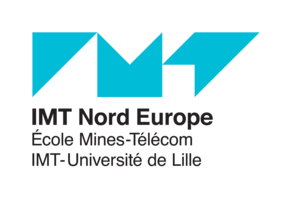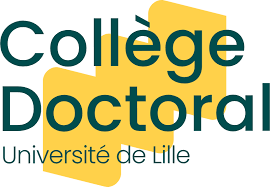Supervision of PhD students
The objectives of this training are as follows:
- Understand the skills development process of a PhD candidate and support their awareness of these skills.
- Guide PhD candidates in reflecting on their career plans.
- Communicate the core values of academic research.
- Motivate and re-motivate PhD candidates.
- Plan the evolution of collaboration methods between supervisors and PhD candidates.
For more information, please refer to the training description on page 19 of the Professional Doctoral Training Catalogue 2024-2025, available here: Training Catalogue.
2026 Schedule
Choose one of the three available sessions:
Session 1: Supervising and Supporting a PhD Candidate
- Dates: 9 and 10 March 2026 (9:00 a.m. to 5:00 p.m.)
- Feedback session: 30 November 2026 (9:00 a.m. to 5:00 p.m.)
- Places: 12
- Location: Flers-Château Campus, Villeneuve d'Ascq
- Adum registration link: Register here
Session 2: Supervising and Supporting a PhD Candidate
- Dates: 27 and 28 April 2026 (9:00 a.m. to 5:00 p.m.)
- Feedback session: 1 December 2026 (9:00 a.m. to 5:00 p.m.)
- Places: 12
- Location: Flers-Château Campus, Villeneuve d'Ascq
- Adum registration link:Register here
Session 3: Supervising and Supporting a PhD Candidate
- Dates: 24 and 25 June 2026 (9:00 a.m. to 5:00 p.m.)
- Feedback session: 2 December 2026 (9:00 a.m. to 5:00 p.m.)
- Places: 12
- Location: Flers-Château Campus, Villeneuve d'Ascq
- Adum registration link:Register here
Passport For Open Science
The Open Science Training Guide (in French, PDF, 414 kB) is aimed at staff responsible for training doctoral candidates. It outlines the steps for creating a training program based on the principles and practices of open science
The guide, published by the Skills and Training College of the Open Science Committee, enables future doctors to learn progressively through a 7-stage path
It identifies the skills to be acquired at each stage and outlines the steps for creating a training program based on the principles and practices of open science
* for management: Evolution and changes in research practices, from generating scientific knowledge to its dissemination
MOOC from the University of Sorbonne (in French and English)
Open Science - Join the Debate
Training in Ethics, Deontology and Scientific Integrity
Following approval by the Graduate School Council on 15 December 2023, a certificate of successful completion of one of these courses will be required for all new thesis applications from the start of the 2025 academic year.
Ethics, deontology, and scientific integrity ensure honest and responsible research practices and maintain quality. They also take into account the impact of scientific activities on society.
- Professional ethics refer to the set of explicit and implicit standards that dictate behaviour and relationships in a particular profession or industry.
- Deontology refers to a set of rules of conduct that must be respected in a professional context.
- Academic deontology is based on fundamental values such as freedom of thought and expression, independence, the quality of scientific debate, rigorous data analysis and the use of reasoned argument, temperance, intellectual honesty, and probity.
The universities of Bordeaux, Lyon and Paris-Saclay all offer MOOCs on ethics and scientific integrity that the ED SMRE recommends exploring:
Training in Human Relationship Practices
In today's complex social, professional, environmental, technological, and human landscapes, the human relations and communication skills cultivated at the University of Lille are invaluable assets for your professional growth
Calendar of training courses in human relationship practices
French as a Foreign Language for International Teachers and Researchers
The Staff Training Department is organising a "French as a Foreign Language for International Teachers and Researchers" training in collaboration with the Department for Teaching French Abroad (DEFI) of the University of Lille Language Centre (CLIL)
Program (in French, PDF, 866 kB)
This training aims to:
- improve your oral and written communication skills for professional and everyday situations at beginner and intermediate levels (A1, A2, B1)
- enhance your communication skills in professional settings, including the ability to argue, organise, and adapt your speech with a strong command of vocabulary, at an independent B2 level
Read more
You will find the training calendar and timetable in the program. This training takes place at the CLIL-DEFI (Cité Scientifique Campus, SUP building, 2nd floor)
Are you interested in signing up? Complete and return this application form to Valérie PAETZOLD (valerie.paetzold@univ-lille.fr) or the HR-Training Department (drh-formation@univ-lille.fr)




